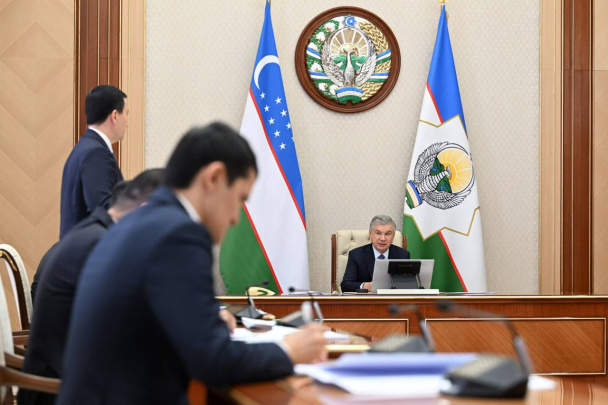Geopolitical tensions and currency fluctuations pose major risks to Uzbekistan’s financial stability
Uzbekistan’s financial system faces significant risks, with external geopolitical instability being the foremost concern, according to a survey conducted by the Central Bank of Uzbekistan. The findings were included in the bank's 2024 Financial Stability Report, which highlights key vulnerabilities and potential threats to the country’s financial sector.

Photo: KUN.UZ
The survey, conducted in June 2024 among 35 commercial banks, revealed that the most critical risk to the financial system is the worsening geopolitical situation. This reflects a shift in concerns compared to the January 2024 survey, where currency volatility was the leading threat. Other risks identified by respondents include sharp fluctuations in exchange rates, rising household debt, increasing inflation, and the threat of cyberattacks.
According to the survey, 45% of respondents listed external geopolitical risks as their top concern, followed by currency volatility (37%), rising household debt (35%), inflation (33%), and cyberattacks (24%).
The report also highlighted several other risks that could potentially affect Uzbekistan’s financial stability, such as defaults by major borrowers, economic downturns, liquidity shortages, declines in real estate prices, and risks associated with climate change.
When asked about the likelihood of systemic risks materializing in the short term (within one year), 46% of respondents rated the probability as low, while 43% considered it moderate. Looking ahead to the medium term (1–3 years), 51% of respondents anticipated a moderate likelihood of systemic risks, with 31% expecting a high probability.
Despite the challenges, the survey found that 60% of respondents expressed confidence in the stability of Uzbekistan’s financial system over the next three years, although this figure represents a 14% decline compared to the January 2024 survey. Additionally, 37% of respondents expressed partial confidence in the financial system’s stability.
In terms of recent trends, 57% of respondents reported an increase in demand for credit in the last six months, while 46% noted an uptick in short-term financing availability. Meanwhile, 37% observed no significant changes in the availability of long-term financing or interbank liquidity.
The report also echoes concerns previously raised by the International Monetary Fund (IMF), which identified external and internal risks to Uzbekistan’s economy. The IMF pointed to the ongoing war in Ukraine, commodity price volatility, and global economic stagnation as key external threats. Domestically, the IMF warned of potential risks related to delays in reducing government spending and obligations arising from public-private partnership projects.
Uzbekistan’s financial regulators and institutions continue to monitor these risks closely to ensure the country's financial system remains resilient amid ongoing global uncertainties.
Related News

14:15 / 25.02.2026
Uzbekistan’s public debt rises 16.5% year on year to $46.8bn

12:50 / 21.02.2026
President Mirziyoyev backs extension of tax relief to accelerate Karakalpakstan’s industrial growth

20:24 / 20.02.2026
Central Bank survey shows downward trend in public inflation expectations

18:00 / 18.02.2026




